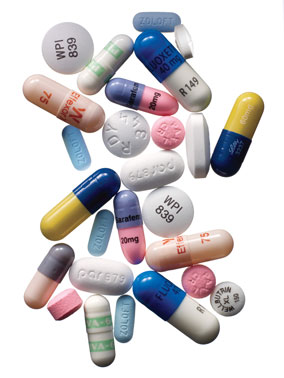Managing Depression with Vitamin B6
Most of us can relate to feelings of being tired, lonely and lethargic. We all have bad days, don’t we? But depression is different. It is like a gaping void entrenched in darkness, which goes on forever, beyond which you can’t see anything, and the very air sucks all hope and energy out of you. Depression is not just sadness. Depression is dangerous. Depression is lethal.
The Diagnostic and Statistical Manual of Mental Disorders (DSM) describes a depressive disorder wherein there is a loss of interest or pleasure in daily activities for more than two weeks, coupled with other symptoms like observable weight loss or gain, change in sleep patterns, feelings of guilt and worthlessness, loss of concentration – anything that can be significant enough to cause a dysfunction in your social, academic or work life. It is also usually coupled with anxiety. It can happen to anyone, although, before we begin to delve into the psychological aspect of depression, there are a few biological factors that might contribute.
For instance, depression can be a result of an underlying chronic illness, a deficiency, or even the effect of medication. One such factor is an insufficiency of B Complex vitamins. It’s no surprise that the intake of vitamins is indispensable for our good health. In fact, their very name suggests their importance involved in helping us grow both physically and psychologically. Since they play a major role in an individual’s normal growth and development, it is imperative that our body receives them in proper amounts – although not in abundance – in order to ensure fitness of the mind.
Here’s where the family of B Complex vitamins come into picture. Specifically responsible for helping the body convert the energy from food into metabolic processes, Vitamin B6 one such vitamin. B6 actually refers to an umbrella term comprising of several forms of the vitamin who work together along these lines. It virtually acts like a co-enzyme, and carries out fast activities owing to our body’s growing demands. B6 is like a silent little nurturer. As with all water-soluble vitamins, it is easily absorbed by the body through the diet to be used up.
But as unimportant as it may sound, Vitamin B6 is actually involved in more than a hundred chemical processes of the body at any given minute. It holds a big share in preventing a slew of illnesses like heart disease, arthritis and plays a role in regulation of blood pressure and cholesterol levels. It is also important for our eyes, hair, skin and liver. It works hand in hand with our immune system, hence helping the body fight off unwanted germs and diseases. On top of that, B6 is directly related to the manufacture of serotonin, an important neurotransmitter in the brain. Hence, a proper value of the vitamin is needed for good, healthy brain function.
There are well-established studies to point to the fact that people suffering from depression have low levels of serotonin. While there is still room for research as to whether increased intake of B6 can completely diminish the symptoms of depression, since Vitamin B6 deficiency affects serotonin levels, it can be said that consumption of B6 is a natural way of tackling depression. Nutritionally-inclined doctors sometimes also advise vitamin shots along with antidepressants for depressed patients.
B6 is available in large amounts in meat, fish, eggs, nuts, whole grains, and vegetables like spinach, potatoes, chickpeas and in fruits like bananas and loads of other things we eat. You wouldn’t need to take pills or chew on exotic foods to absorb this vitamin, since it is usually obtained through the everyday diet. Even then, it is still one of the most common deficiencies found in the population. B6 deficiency can be quite scary. Small children and the elderly usually have a mild case of this, but severe shortage of B6 can cause serious problems like peripheral neuropathy, anaemia, confusion, nausea, including depression – which can lead to drastic consequences. On the other hand, an overabundance of B6 can cause toxicity in the system which is very difficult to manage.
Recent studies only hold proof to the many important benefits of Vitamin B6 and its prevention of many illnesses. But what do we have to do in order to reap them? Eat! And just eat. It is beneficial that we keep a balanced diet in order to absorb all nutrients that we can into our bodies, and metabolise. There are many alternative treatments for depression including therapy, self-help books, meditation and so on. In addition to that, while antidepressants might be a short-term measure for improving our mood, it is also important that we look for solutions better suited to our body, the ones that can be found right at our doorstep. Our food gives us life, the quality of which, will be determined by only you.




